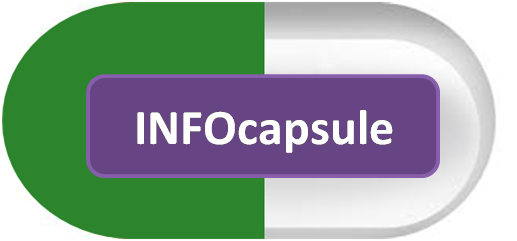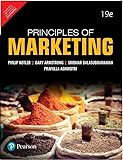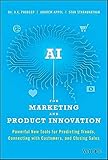 |
Learning Resource Centre Monthly Bulletin |
 |
 |
Learning Resource Centre Monthly Bulletin |
 |
| New Books |
 B119994 Principles of Marketing By Kotler Philip |  B119799 Product Design and Development By Ulrich Karl T |  B119602 AI for Marketing and Product Innovation By Pradeep A. K |
| Click Here to learn about the Recent Books added to our collection on different topics of Management. |
| Articles |
| The Impact of AI-Powered Influencer Marketing on Consumer Engagement and Purchase Intent: An Indian Perspective. By Patil, Swati Advances in Consumer Research. 2025, Vol. 2 Issue 4, p4131-4148. 18p. Abstract :This research investigates the emerging intersection of artificial intelligence and influencer marketing, exploring how AI-powered tools and strategies reshape consumer engagement metrics and influence purchase decisions in the Indian market. Through a mixed-methods approach incorporating both quantitative survey data (n=312) and qualitative interviews with marketing experts (n=15), this study examines the effectiveness of AI-enhanced influencer collaborations across various digital platforms. Findings reveal that AI-optimized influencer content generates 37% higher engagement rates compared to traditional influencer marketing approaches. The research identifies five key mechanisms through which AI enhances influencer marketing efficacy: personalization capabilities, content optimization timing, audience segmentation precision, sentiment analysis integration, and performance prediction modelling. Additionally, purchase intent increased by 42% when AI-driven personalization was employed in influencer campaigns. These results offer valuable insights for marketing practitioners in India seeking to leverage AI technologies in influencer partnerships while highlighting essential considerations regarding authenticity maintenance and ethical implementation. This study contributes to the growing body of knowledge on digital marketing innovation in emerging markets and provides a framework for evaluating AI integration in influencer-driven consumer engagement strategies. [ABSTRACT FROM AUTHOR] | |||
| Implications and Applications of Human Centric Marketing in the Era of Industry 5.0. By Kulkarni, Kavita Sasidharan; Jayanthi, B. V. Advances in Consumer Research. 2025, Vol. 2 Issue 4, p421-429. 9p. Abstract :Instead of viewing consumers solely as purchasers who react to product attributes and pricing, human-centric marketing treats them as humans with heartbeats who have feelings, dreams, and specific wants and needs. This strategy facilitates enhanced relationships between customers, salespeople, and other relevant parties, which in turn leads to a sustainable and favorable outcome for the businesses. As Industry 5.0 emerges, with its focus on the human-centric collaboration between humans and advanced technologies, human-centric marketing is poised to play an integral role in the future of commerce. Industry 5.0 combines state-of-the-art technology with human intellect, and action and needs to be integrated within the processes and allows the creation of personalized and value-driven interaction between the consumers and the producers in both goods and services. Marketing strategic decisions cannot just be transactional anymore they must gain trust, and people can be trusted only when there is empathy and innovation. This change is made possible partly by technology, which allows companies to take advantage of artificial intelligence (AI), big data, and automation while continuing to provide the touch of a human in customer interactions. This is a shift in paradigm, especially relevant to emerging economies like rural India where we are witnessing a revolution in digital to the way businesses and marketing have been run conventionally. Rural India is a good example of using technology to carry out human-centric marketing very successfully. While certain regions have significant infrastructural gaps, many have successfully adopted digital tools, embraced mobile applications, or taken a step further into social commerce to boost customer engagement. Programs using AI-based chatbots, vernacular content, and digital payment solutions are allowing rural consumers to connect to solutions catering to their specific requirements. In addition, companies making use of community-based marketing plans, helped by social sites and small networks, have built brand trust and loyalty. Industry 5.0 principles highlight the need for a more holistic and human-centric approach that combines the benefits of technology with the essence of our humanity. If the customer experience is kept at the center while integrating digital innovations, it can help businesses create authentic interactions, build inclusivity, and improve long-term sustainability. The human angle of marketing combined with the technology employed for this purpose that is demonstrated in (and has existed in) rural India, gives companies around the world an example to live by and represents the future of more personalized and effective marketing. This paper recognizes the main variables inherent to the successful implementation of such strategies and presents a model for their implementation. [ABSTRACT FROM AUTHOR] | |||
| Generative AI in Marketing: Promises, Perils, and Public Policy Implications By Kumar, V.; Kotler, Philip; Gupta, Shaphali;Rajan, Bharath Journal of Public Policy & Marketing. Jul2025, Vol. 44 Issue 3, p309-331. 23p Abstract :By evaluating the pattern of generative AI (GAI) use by businesses in marketing, this study aims to understand the subsequent impact on society and develop policy implications that promote its beneficial use. To this end, the authors develop an organizing framework that contends that the usage of GAI models by businesses for marketing purposes creates promises and perils for society through a specific business process. This business process is represented by the action → capabilities → transformation → impact link in the proposed framework. Additionally, the authors find that the level of technology infrastructure, skilled personnel, and data access moderates the influence of GAI on businesses` ability to develop technology-driven capabilities. Furthermore, adaptive leadership and management strategies moderate the impact of these capabilities on technology-enabled business transformations. This research is the first study to critically evaluate the use of GAI in marketing from a public policy perspective. The study concludes with an agenda for future research. [ABSTRACT FROM AUTHOR] | |||
| Do you wish to explore more articles? Just try using one of the full-text databases below! | |||
| Faculty - Click here to recommend new topics in Marketing |
| News |
| From search to shopping carts, digital ads mint Rs 80,000 crore By The Economic Times; Jan 30 2026 |
| Economic Survey calls for strengthening India`s long-term debt market By The Economic Times; Jan 29 2026 |
| India protects mass-market cars, dairy and staples in EU trade pact By Economic Times; Jan 29 2026 |
Wish to see more News? Click the link below: |